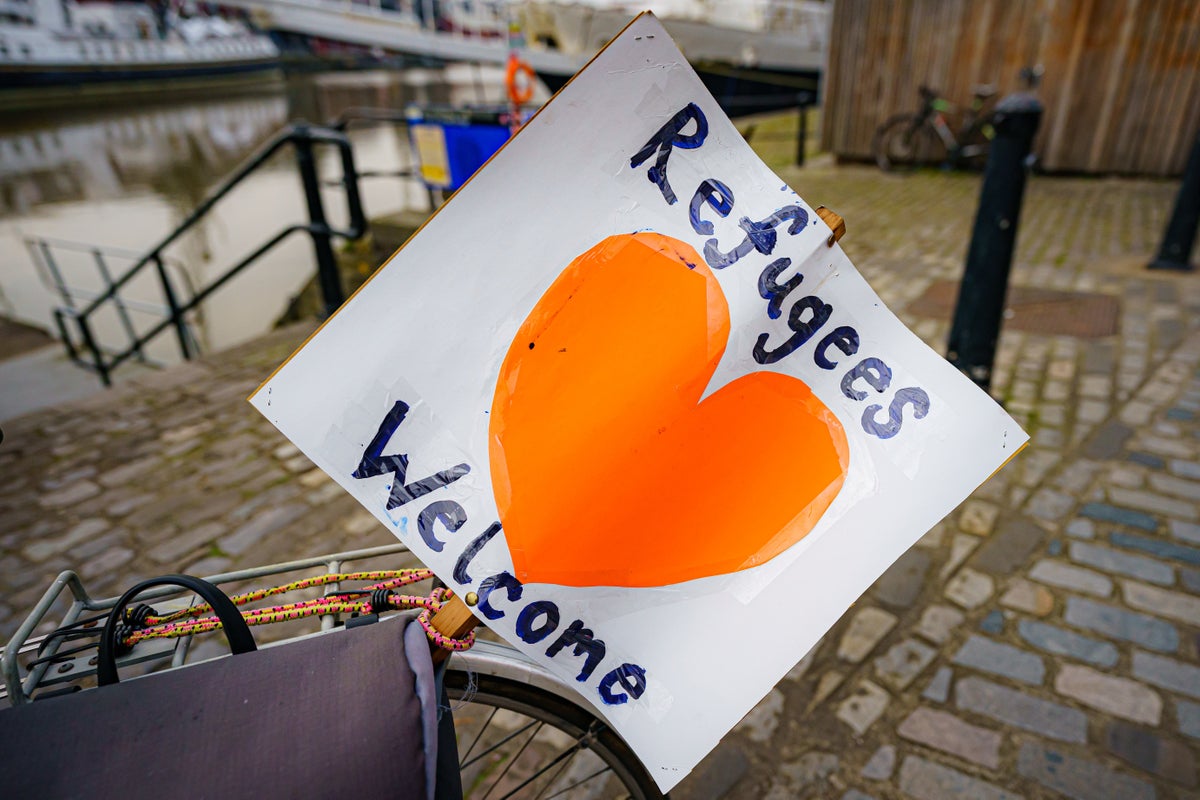
An annual cap on the number of refugees accepted in the UK will launch in January 2025, the Home Office has announced.
Local authorities are being invited to set out their “capacity” to accommodate people coming to Britain via safe and legal routes in order to determine the limit, the department said.
Plans for a cap were introduced in the Government’s flagship Illegal Migration Bill, which became law earlier this year, but until Friday a date for its launch had not been fixed.
In response, the Local Government Association (LGA) said it had raised concerns with officials about “being asked to commit to numbers of arrivals or propose a cap”.
As part of the Illegal Migration Act to stop the boats, we will bring in a cap on our safe and legal routes informed by the capacity of local authorities— Immigration minister Robert Jenrick
It stressed there was a need to recognise “cumulative pressures on local services” and ensure councils are adequately funded.
Campaigners accused ministers of “passing the buck to underfunded councils” to justify the plan.
The limit, for which the Government will look to get Parliament’s stamp of approval before bringing into force in January 2025, would be subject to change each year.
It would not include the Ukraine visa schemes, Afghan relocation and assistance policy, Hong Kong British national (overseas) route or mandate scheme.
In a press release, the Home Office said: “Local authorities will be consulted on plans to determine an annual cap on the number of refugees resettled in the UK each year… with a view to the UK taking only as many refugees as local communities can support.”
Immigration minister Robert Jenrick said: “The unacceptable number of people making illegal, dangerous and wholly unnecessary small boat crossings is placing an immense strain on housing and services across the UK.
“As part of the Illegal Migration Act to stop the boats, we will bring in a cap on our safe and legal routes informed by the capacity of local authorities.
“This will ensure that we do not take more refugees than our public services and communities can cope with and that the refugees we do decide to take can be properly supported and integrated.”
There currently aren’t enough safe routes for men, women and children facing persecution, violence and terror to reach our shores— Enver Solomon, Refugee Council chief executive
Councillor Shaun Davies, chairman of the LGA, said: “Councils work hard to protect and support refugees and help deliver a wide range of government asylum and resettlement schemes, so it is right that local government is engaged in planning for future resettlement to the UK.
“However, we have raised concerns about councils being asked to commit to numbers of arrivals or propose a cap. It might be difficult for councils to predict potential arrival numbers across both asylum and resettlement and therefore their capacity to support new arrivals and the additional housing needed. Their local communities may also have differing views on and capacity to support new resettlement routes.
“It comes as combined pressures from current asylum and resettlement schemes are already growing on councils. We want to work with Government on a new joined-up approach across programmes that takes into account those pressures, grounded in advance notice to councils of any decisions that will impact on their local communities.”
Steve Smith, chief executive of refugee charity Care4Calais, said: “Passing the buck to underfunded councils to justify limiting safe futures is a dereliction of leadership.
“If the Government was serious about putting people smugglers out of business, stopping small boat crossings and saving lives, they would immediately get on with introducing a safe passage visa for refugees fleeing war, torture and modern slavery to claim asylum in the UK.”
Tim Naor Hilton, chief executive of Refugee Action, called for the cap to be abandoned.
“The Government must not think about caps but a target to resettle at least 30,000 refugees a year as part of a standardised global scheme that can expand to respond quickly to emerging crises, such as in Afghanistan and Ukraine,” he said.





